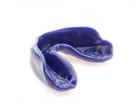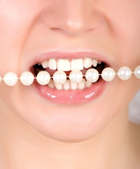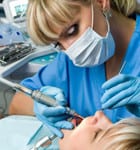 At City Dental Leeds we pride ourselves on offering the best orthodontic treatments around and we are delighted to have 6 Month Smiles as part of our range of incredible orthodontic systems. If you’re searching for a versatile, quick and effective treatment right here in Leeds, look no further!
At City Dental Leeds we pride ourselves on offering the best orthodontic treatments around and we are delighted to have 6 Month Smiles as part of our range of incredible orthodontic systems. If you’re searching for a versatile, quick and effective treatment right here in Leeds, look no further!
What is 6 Month Smiles?
6 Month Smiles is a fixed brace treatment, which corrects misalignment issues with the front teeth in record time. This treatment is geared towards the front teeth only, as these are the teeth that can be seen when you smile and it employs the latest self-ligating technology to move the teeth quickly. Self-ligating wires also help to reduce pressure by generating gentle forces.
6 Month Smiles is not an invisible system, but the braces are designed to work discreetly; they are made from clear brackets and tooth-coloured wires, making them much less noticeable than traditional fixed braces.
As you may have guessed from the name of the treatment, 6 Month Smiles aims to complete cases within 6 months; this means that it is one of the fastest treatments out there. As fewer appointments are required during the treatment process, this system is also less expensive than many other treatments.
Who is the best match for 6 Month Smiles?
This treatment is versatile and it offers a solution to many patients with common orthodontic issues, including mild or moderate spacing, crowding or crooked front teeth. Ideally, this is suited to patients who require a limited amount of movement in response to issues that affect the front teeth; if you have more complex needs, which require more movement, another solution may be best and we can make recommendations once we are fully aware of your prescription and your needs.














